Andri Snær Magnason's Blog, page 9
October 24, 2014
Meet me in Munchen, November 4th.
Interdisciplinary Lecture Series of the cx centre for interdisciplinary studies
Academy of Fine Arts Munich
winter term 2014/15
The times of utopias seems to have passed. Already since the 1980s we constantly hear of the end of the ‘grand narratives’. The subsequent enthusiasm for heterogeneity and plurality meanwhile devolved into a condition of fatigue, which in all its repetitions and nostalgias blocks the view of the future. But what is the „present of the future“ today?
The third annual theme oft he cx centre for interdisciplinary studies asks, which means and strategies artists and scholars pursue today, to gain a radius of operation which rises from the conditions we are faced with – without falling into nostalgic utopianisms or apocalyptic sensationalisms. How do different disciplines create potentials for change, for the imagination of possible futures beyond modernistic idealisms and romanticist projections? How can they contend for new freedoms within the configuration of our tomorrows, beyond the present routines and determinations? Contemporary answers to those questions range from the openness of experimental systems and the inclusion of contingency into scientific proceedings to speculative and fictive approaches in philosophy, art and design.
Tuesday 4 November 2014, 7:00 pm, auditorium in the annex building
Bad Prospects ?
Wolfgang Lucht, Chair in Sustainability Science and Earth System Analysis, Potsdam Institute for Climate Impact Research and Humboldt University Berlin
Andri Snær Magnason, writer, Reykjavík
Wednesday 19 November 2014, 7:00 pm, Historical auditorium in the old building
Techniques of Survival
Claudia Aradau, Reader in International Politics, King’s College London
Metahaven (Daniel van der Velden), studio for design and research, Amsterdam
Tuesday 2 December 2014, 7:00 pm, Historical auditorium in the old building
Experimenting the Future
Hans-Jörg Rheinberger, Director emeritus at the Max Planck Institute for the History of Science in Berlin and honorary professor at the Institute for Philosophy and History of Science of the Technical University Berlin
Jan St. Werner, composer and musician, Berlin
Tuesday 16 December 2014, 7:00 pm, Historical auditorium in the old building
Occupying the Future
Frédéric Neyrat, Lecturer in Comparative Literature, University of Wisconsin-Madison
Tuesday 13 January 2015, 7:00 pm, auditorium in the annex building
Calculating with contingency
Elena Esposito, Professor for Sociology of Communication, Università degli Studi di Modena e Reggio Emilia
Nora Schultz, artist, New York / Berlin
Tuesday 20 January 2015, 7:00 pm, Historical auditorium in the old building
Fictions of the Future
Liam Young, speculative architect, Tomorrow’s Thoughts Today/Unknown Fields Division, London
Wednesday 28. January 2015, 7:00 pm, auditorium in the annex building
Futur(e) Human
Karin Harrasser, Professor for Cultural Studies, Kunstuniversität Linz
Johannes Paul Raether, artist, Berlin
A moderated discussion will take place subsequent to each lecture. The lectures will be held in German or English. A publication with all contributions to the lecture series is being planned.
The lecture series has been organized by Susanne Witzgall, head of programme, and Kerstin Stakemeier, Juniorprofessor for media theory and visual studies, in cooperation with Karianne Fogelberg research fellow for design and architecture theory.
The programme of the cx centre for interdisciplinary studies is financed by the Federal Ministry of Education and Research.
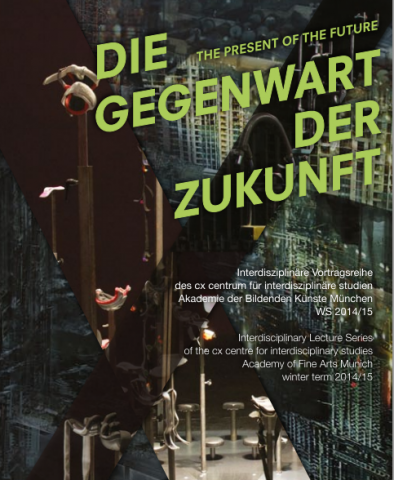
October 22, 2014
Jarvis Cocker visits my family at Melrakkaslétta…
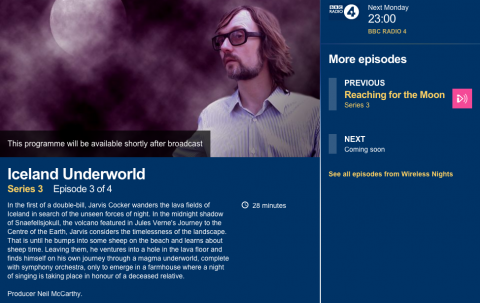 Strange things and randomness tends to happen in my life and one of them you can here very soon on BBC Radio 4. There is a show by Jarvis Cocker called Wireless Nights and they came up north to record the mood of the endless summer nights just below the arctic circle up at our deserted farm in Melrakkaslétta. As you can read in the BBC description of the show: Jarvis Cocker was looking for the centre of the earth, he was diving through the magma underworld and found himself with our family up north. I will say no more, very curious to listen myself!
Strange things and randomness tends to happen in my life and one of them you can here very soon on BBC Radio 4. There is a show by Jarvis Cocker called Wireless Nights and they came up north to record the mood of the endless summer nights just below the arctic circle up at our deserted farm in Melrakkaslétta. As you can read in the BBC description of the show: Jarvis Cocker was looking for the centre of the earth, he was diving through the magma underworld and found himself with our family up north. I will say no more, very curious to listen myself!

Here is the BBC description:
In the first of a double-bill, Jarvis Cocker wanders the lava fields of Iceland in search of the unseen forces of night. In the midnight shadow of Snaefellsjokull, the volcano featured in Jules Verne’s Journey to the Centre of the Earth, Jarvis considers the timelessness of the landscape. That is until he bumps into some sheep on the beach and learns about sheep time. Leaving them, he ventures into a hole in the lava floor and finds himself on his own journey through a magma underworld, complete with symphony orchestra, only to emerge in a farmhouse where a night of singing is taking place in honour of a deceased relative.
Producer Neil McCarthy.
October 21, 2014
LoveStar published in France in January
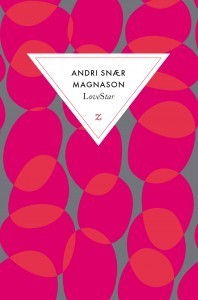
LoveStar is coming out in French by Zulma in January.
Here is more information about the English version, french below:
Roman traduit de l’islandais par Éric Boury
« Peu de temps après que les mouches à miel eurent colonisé Chicago, les papillons monarques furent saisis d’un étrange comportement. […] Au lieu d’aller vers le sud rejoindre leurs quartiers d’hiver, ils se dirigèrent vers le nord. » C’est ainsi que s’ouvre le roman, fable imaginative et pourtant étrangement familière, tenant à la fois de Calvino et des Monty Python.
Face à la soudaine déroute de toutes sortes d’espèces volantes, le génial LoveStar, vibrionnant et énigmatique fondateur de l’entreprise du même nom, invente un mode de transmission des données inspiré des ondes des oiseaux, libérant d’un coup l’humanité, pour son plus grand bonheur, de l’universelle emprise de l’électronique. Et développant au passage quelques applications aussi consuméristes que liberticides… Avec des hommes et des femmes ultra connectés payés pour brailler des publicités à des passants ciblés, le système ReGret, qui permet « d’apurer le passé », ou le rembobinage des enfants qui filent un mauvais coton. Autre innovation, et pas des moindres, en faveur du bonheur humain : les âmes sœurs sont désormais identifiées en toute objectivité par simple calcul de leurs ondes respectives.
Quand Indriði et Sigríður, jeunes gens par trop naïfs et sûrs de leur amour, se retrouvent « calculés », ils tombent des nues : leur moitié est ailleurs. Les voilà partis, Roméo et Juliette postmodernes contrariés par la fatalité, pour une série de mésaventures cocasses et pathétiques, jusqu’à ce que leur route croise celle de LoveStar lui-même, en quête de son ultime invention…
LoveStar coming to Japan November 21st
LoveStar by Andri Snær Magnason will be published in Japan November 21st. This is my third book published in Japan, but The Story of the Blue Planet and Dreamland have both been published.
Here is the cover illustration made by Wakako Katayama, a very different cover from the others. The cover design is by Kei Namito, the publisher is Tokyo Sogensha and the translator is Chiori Sada. Here you can find LoveStar and Dreamland in Japanese.
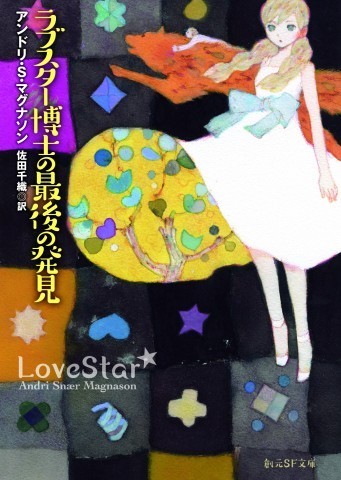 About LoveStar:
About LoveStar:
LoveStar, the enigmatic and obsessively driven founder of the LoveStar corporation, has unlocked the key to transmitting data via birdwaves, thus freeing mankind from wires and devices, and allowing consumerism, technology, and science to run rampant over all aspects of daily life. Cordless modern men and women are paid to howl advertisements at unsuspecting passers-by, REGRET machines eliminate doubt over roads not taken, soul mates are identified and brought together (while existing, unscientifically validated relationships are driven remorselessly asunder), and rocketing the dead into the skybecomes both a status symbol and a beautiful, cathartic show for those left behind.
Indridi and Sigrid, two blissfully happy young lovers, have their perfect worlds threatened (along with Indridi’s sanity) when they are “calculated apart” and are forced to go to extreme lengths to prove their love. Their journey ultimately puts them on a collision course with LoveStar, who is on his own mission to find what might become the last idea in the world.
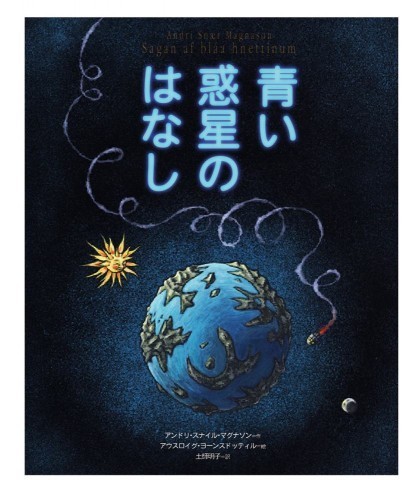 REVIEWS
REVIEWS
“Orwell, Vonnegut, and Douglas Adams are felt on every page, though Magnason is never derivative. His satire and insightful social commentary sweeten the pot and the sheer wackiness of Magnason’s oversized imagination is invigorating.”—Publishers Weekly
“The imaginative power of novels like LoveStar may serve as a wake-up call, if only we read and heed them.” Michael A. Morrison, University of Oklahoma, World Literature Today.
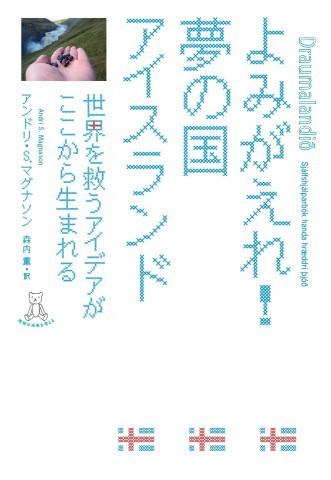
September 22, 2014
My newest book at the Göteborg Bookfair
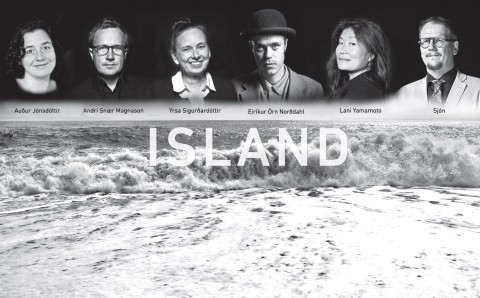
The Icelandic Literature Center participates in the Göteborg Book Fair, which takes place September 25-28 this year. This will mark the 30th time that the event, which annually attracts roughly 100,000 guests, takes place.
The Icelandic stand at the Göteborg Book Fair is a collaboration with Promote Iceland, and features portraits of the authors by photographer Íris Dögg Einarsdóttir. The stand number is C02:01.
This year, the Icelandic authors Eiríkur Örn Norðdahl, Yrsa Sigurðardóttir, Andri Snær Magnason, Sjón and Lani Yamamoto appear at the event. Go here for the full Icelandic program -
Andri is reading from his new book – Tímakistan – nominated for the Nordic Children’s book Award, and also from his poetry and he will be talking with Eiríkur Örn Norðdahl on new Icelandic Literature:
Friday 26/9
Meet two nominees for the 2014 Nordic Council Children’s and Young People’s Literature Prize – Andri Snær Magnason and Máret Ánnes Sara (SAM).
11:30 – 11:50
Ung Scen, A03:22
Saturday 27/9
Readings with Firan, Andri Snær Magnason, Åkesson & Beber
12:00 – 13:00
Rum för Poesi, R2
A new generation of Icelandic writers – Andri Snær Magnason and Eiríkur Örn Norðdahl
14:00 – 14:45
H1
2014 Göteborg Book Fair Seminar Programme – English
2014 Göteborg Book fair Seminar Programme – Swedish
September 16, 2014
Flugvélabensín
Hey here is a poem! From the spoken word CD Flugmaður, in collaboration with múm. The CD came out in 1999, but that same year they did the music for my play – Náttúruóperan.
I made a rough english translation of the poem here:
Airplane fuel
Airplane fuel. Thats my favorite smell. To enter the parking lot of a
foreign airport in sweltering summer heat and find the smell of airplane
fuel blended with diesel smoke from the buses and you regret
not flying in shorts and think the taxi driver will kill you but still:
You know that the next two weeks will be great. Airplane fuel. Thats the
smell of adventure and when I feel that smell on my walk past Reykjavík
airport I get butterflies in my stomach and regret that I’m not wearing
shorts and feel like the next two weeks will be fabulous.
September 13, 2014
Reading at the International Literature Festival Berlin
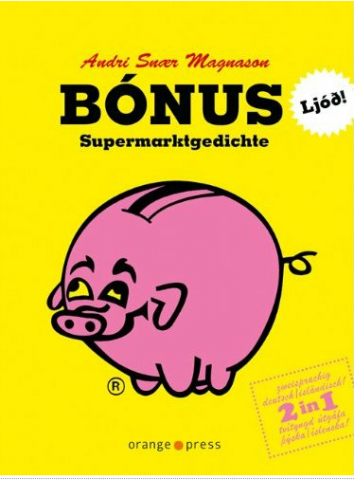
Reading in Berlin tonight! International Literary Festival Berlin: More Information HERE:
A Long Night of International Poetry. With Anneke Brassinga [Netherlands], Brian Brett [Canada], Ashur Etwebi [Libya], Andri Snær Magnason [Iceland], Afrizal Malna [Indonesia], Charl-Pierre Naudé [South Africa], Ian Wedde [New Zealand], and Yang Lian [Chi
Sep 13, 2014 07:00 pm
Literatures of the World
Vor dem Alten Museum Mitte
Authors
Anneke Brassinga,
Brian Brett,
Andri Snær Magnason,
Afrizal Malna,
Charl-Pierre Naudé,
Ian Wedde,
Yang Lian
Host
Silke Behl
Speaker
Susanna Kraus
Nina West
Price 0 Euro
Ticket informations
The Dutch poetry scene’s »magician of language«, Anneke Brassinga, displays an inimitable feel for the material of speech in her poems, and language itself often occupies the foreground of her texts. The poems by Canadian author Brian Brett explore our human relationship to the natural disorder of things, seeking and finding the unusual within the familiar. Ashur Etwebi is one ofLibya’s most renowned poets. His work is intimate but impactful, as innovative as it is traditional, influenced by modern poetry but nevertheless popular and accessible. Andri Snær Magnason is »one ofIceland’s most versatile, interesting artists« (»Die Zeit«). His »supermarket poems« called »Bónus« go right to the core of our capitalist society. Afrizal Malnas’ poems take a critical look at language and distinguish the author as one ofIndonesia’s most unique voices. In his poems, he explores the complicated relationship between speech, the body, and space with great humor and vigor. Charl-Pierre Naudé found his voice in the dawn of the post-apartheid era—in his poems, he describes the political within the private, writing in both Afrikaans and English. He was awarded the Ingrid Jonker Prize for his exceptional debut collection of poems. The poems byNew Zealand’s »poet laureate« Ian Wedde approach a rhapsodic mixture of fear and humor. The Chinese poet Yang Lian has lived in exile since the Tiananman Square Massacre. His poems are characterized by motifs like mortality and death, and always have a shocking impact that rips readers out of the trance of everyday life.
In case of rain the event will take place at Collegium HungaricumBerlin.
Free entry
August 19, 2014
Reading in Rendsburg, Kiel and …
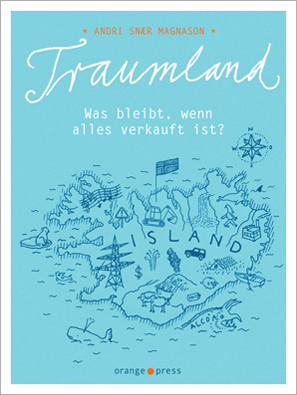
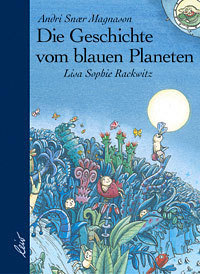
I am off to Germany for three readings from my work as a part of The Literatursommer 2014 in Schleswig Holstein. For more information in German see here:
August 20th: Rendsburg:
http://www.nordkolleg.de/aktuelles/veranstaltungen__link_index_18_1706344_1__detail.html
August 21st: Hohenlockstedt Kunsthaus
http://www.hohenlockstedt.info/html/lesung_im_kunsthaus_m_1.html
August 22: Kiel Literaturhaus
http://literaturhaus-sh.de/programm/literaturkalender_sh.event.1779.html
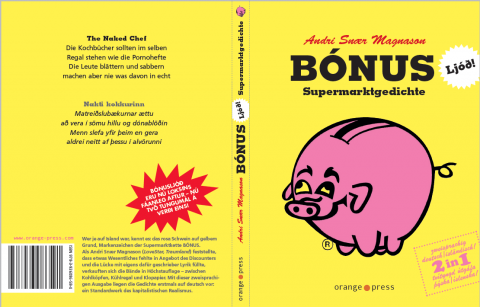
Andri Snær Magnason gibt Eindrücke aus seinem Werk, u.a. aus “Traumland” und “Bónus. Supermarktgedichte”
Andri Snær Magnason wird anhand eines Bild-Vortrages durch sein künstlerisches Werk führen. Als einer der vielseitigsten Autoren Islands beschreitet er zuweilen ungewöhnliche Wege, um zu sagen, was er zu sagen hat. Indem er seine Gedichtbände in einer Supermarktkette verkaufen ließ, erreichte er Rekordauflagen; auf seine Anregung hin wurden 2006 in Reykjavík eine halbe Stunde lang sämtliche Lichter ausgeschaltet, während ein Astronom am Radio den Sternenhimmel erklärte; 2009 verfilmte Magnason als Co-Regisseur seinen Bestseller “Traumland”, der erfolgreich auf vielen internationalen Filmfestivals gezeigt wurde. In 2010 erhielt er den hochdotierten KAIROS-Preis der Alfred Toepfer Stiftung und sein aktuelles Kinderbuch “Tiímakistan” (The Casket od Time) ist für den “Nordic Council Children and Young People’s Literature Prize” 2014 nominiert.

Click here for information in German!

July 5, 2014
The Story of the Blue Planet wins the UKLA AWARD
THE STORY OF THE BLUE PLANET BY ANDRI SNÆR MAGNASON, WINS UKLA BOOK AWARD IN THE 7 TO 11 YEAR CATEGORY.
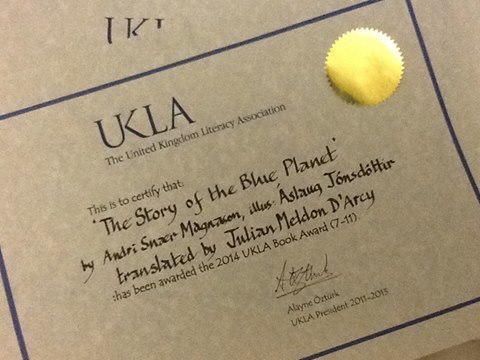 The winners
The winners
The unique UKLA Book Awards are the only awards judged entirely by teachers. The judges have awarded one of them for the first time to a book in translation, to Pushkin Children’s very first book on their list, The Story of the Blue Planet by Andri Snær Magnason, translated by Júlían Meldon D’Arcy and illustrated by Áslaug Jónsdóttir.
“The Story of the Blue Planet comes alive when you read it to a class of children who love the idea of a place, populated entirely by children, living in harmony, playing happily and bathing rarely! Into this blissful existence comes the shady character of Jolly-Goodday who entices them into a whole new level of fun – but at a cost … Suspense, laughter and many questions accompany each chapter in this book, which has been enjoyed by classes throughout the 7-11 age range, each appreciating it on different levels and inspiring moral, philosophical and environmental debate. I loved reading it aloud – you could have heard a pin drop in my class! One boy said ‘Please can you just read it all day?’” Jane Steel (judge)
The Story of the Blue Planet is a whimsical fairy tale that will appeal to fans of Maurice Sendak, Dr Seuss and Hans Christian Andersen. It is also the first children’s book to win the prestigious Icelandic Literary Prize and is published in 26 countries.
‘Andri Snær Magnason writes with a Seussian mix of wonder, wit and gravitas’ The New York Times
UKLA BOOK AWARD WINNERS 2014: TRULY INTERNATIONAL, TRULY DIVERSE AWARD WINNERS
Alayne Ó¦zturk, President of UKLA said “UKLA is committed to the importance of a diverse range of literature for children and young people. We know that literature broadens the reader’s experience of the world and sense of the possible and thus should have a central place in classrooms and educational contexts. The exceptional quality of the shortlists this year and the truly outstanding winners shows that there are many gems to be found amongst the smaller presses and we are proud to be celebrating international authors and illustrators at our 50th International Conference”
The winning book for the 3 to 6 years category is This is not my Hat written and illustrated by Jon Klassen, published by Walker Books
The winning book in the 12 to16+ years category is Now is the Time for Running by Michael Williams, published by Tamarind Books an imprint of Random House Children’s Books
The Award winners for the book categories 3 to 6, 7 to11 and 12 to16+ years were announced at a wine reception at the UKLA International Conference at the University of Sussex on Friday 4th July 2014.
~
Notes to editors
The United Kingdom Literacy Association (UKLA) is a registered charity, which has as its sole object the advancement of education in literacy. UKLA is concerned with literacy education in school and out-of-school settings in all phases of education and members include classroom teachers, teaching assistants, school literacy co-ordinators, LEA literacy consultants, teacher educators, researchers, inspectors, advisors, publishers and librarians.
The UKLA Book Award is unique as it is the only national book award selected by teachers from both the primary and secondary sectors.
For UKLA, giving classroom practitioners the opportunity to read a number of new children’s books is as important as finding an overall winner. Research carried out by members of UKLA (Cremin et al 2008) clearly demonstrated the links between teachers’ knowledge of children’s books and the likelihood of pupils becoming successful readers. Despite this evidence, teachers are seldom given time to read new books or funding to purchase them when they do.
Sponsors Micro Librarian Systems have over 25 years experience developing high specification library systems for schools and colleges and provide library automation solutions to over 15,000 schools worldwide. They provide cost effective and user friendly library systems, which will revolutionise the way the library works, support the curriculum and encourage reading for pleasure and purpose. They are committed to providing engaging technologies to foster a reading and information culture that promotes independent motivated readers and learners for life. For more information see www.microlib.org.uk
The final panel of teachers to decide the prize winners was drawn from the group of over 55 teachers from schools across Sussex involved in the shortlisting.
Teachers were looking for books which evocatively express ideas and offer layered meanings through the use of language, imaginative expression and rich illustration. The opportunity to widen their knowledge of new children’s books and to read, enjoy and talk about them together was welcomed by the teachers involved.
Andri Snær Magnason and Áslaug Jónsdóttir are available for publicity
Contact Rosamund Hutchison Rosamund@prcollective.co.uk / +44 (0)7886618301
June 21, 2014
All shades of the Blue Planet – translation of Polish Reveiw
All shades of the blue planet – english translation of theater review by Anna Jazgarska, teatralny.pl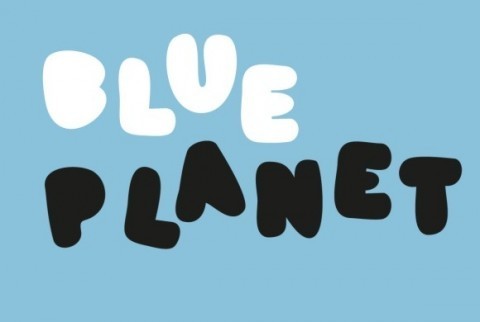
The atmosphere of the latest production by Gdańsk’s Miniatura Theatre recalls Krzysztof Gradowski’s 1980s film series – the slightly psychedelic tales of Mr Kleks and his pupils.
In The Blue Planet, just as in those films, the levity and naiveté of childhood years is confronted with elements which shake up this land of happiness, forcing the characters to make difficult choices and changing the prevalent perspective on reality. And all this happens within a space full of remarkable places and bizarre creatures, a marvellous place which also hides a few shady nooks and crannies.
The production of The Blue Planet is the Polish premiere of the play by Andri Snær Magnason. The Icelandic author has adapted for the stage his greatly acclaimed novel (awarded, among others, the Janusz Korczak Literary Prize) The Story of the Blue Planet. The play was directed by another Icelander – director and actor Erling Jóhannesson who, together with the set designer Iza Toroniewicz, has prepared a performance which delights with its form and is very interesting in its content.
In the context of the first scenes of the play, the blue planet is seen as a place in which time has stopped, a place isolated from the rest of the universe, self-sufficient and suspended in its own, safe unchanging rhythm. A paradise? Definitely a variation on the theme, drenched in shades of purple and blue and soothing for the eye. This weird land of paradisiacal provenance is inhabited by equally bizarre beings – children who never grow old. The perpetually young inhabitants of the blue planet spend their time having fun and satisfying their basic needs. Nothing and no-one disturbs the carefree monotony of their perennially child-like existence. Until.
Jolly Goodday (Piotr Kłudka) is an inter-galactic vacuum cleaner salesman whose spaceship accidentally (?) lands on the blue planet. Initially his unexpected arrival awakes in the children a dormant need to experience something new, exciting and even a little scary. Brimir (Jakub Ehrlich) and Hulda (Edyta Janusz-Ehrlich) instantly weave a tale concerning the sudden guest. “It’s a monster!”, they warn their fellow tribespeople and, as it will later turn out, this seemingly exaggerated phrase, which carries the threat of danger, is not so far removed from who the smiling Jolly really is.
Piotr Kłudka creates the character of Jolly in a way which, from the “planet-to-planet” salesman’s initial appearance, makes us believe that the smiles, jokes and gags conceal something menacing and that Jolly possesses yet another side to his cheery personality – not at all funny and kind. The character of the intergalactic salesman stirs a strange and intangible feeling of anxiety, which increases when Jolly starts introducing some completely new, previously unknown elements into the children’s existence. The mechanism behind his actions is straightforward yet effective. Jolly convinces the children that their existence has hitherto been simply boring and proceeds to suggest a non-standard way out of the monotony by giving them butterfly dust which will enable them to fly. He will then cover their skin in a mysterious substance, thanks to which the dust will never wash off. He will nail the sun to the sky to stop it from ever setting again, thus allowing the children to enjoy incessant fun. And all this under one condition – the children will give him a little bit of their perpetual youth.
Their consent to the mysterious guest’s offer sets in motion an entire avalanche of events which to a large degree serve as initiation for the children’s community. Brimir and Hulda accidentally find themselves on the other side of the planet which has been plunged into darkness through Jolly’s actions, its murky recesses inhabited by blood-thirsty monsters. It is also inhabited by some children, hungry, scared and frozen from the constant chill. It is the confrontation with this community which forces Brimir and Hulda to review their former lives. They return to the sunny side of the planet having resolved to introduce some changes. This, however, does not prove that easy. By letting the cunning Jolly into their lives the children have brought irreversible changes into their own private space. The carefree fairy-tale about perpetual childhood has unexpectedly turned into an alarming story about instantly growing up.
The play’s greatest merit is that it is not obvious. The world of the blue planet is free from clear-cut, radical divisions. Nothing here is black or white, everything and everyone scintillates in various shades of various colours. There is no room for imposing simple story-lines or “home truths”. The end of the performance is very ambiguous and does not provide a resolution, merely suggesting options instead. The tale of perpetual children contains a multitude of meanings. It talks about alienation and standing out. It draws our attention to the myriad dimensions and meanings in the world. It tackles the currently important issue of possession and access to various products. Finally and most importantly, it very clearly shows the consequences of ill-considered decisions, taken on the spur of the moment and for hedonistic reasons. Despite the multitude of subjects tackled, the play is clearly constructed and easily comprehensible to a young audience. What is more, the story of the blue planet and its inhabitants arouses great emotions in children. In the performance I watched most of the audience were children whose degree of excitement at the play seemed to be reaching maximum levels.
The beautiful set design by Iza Toroniewicz, the unusual and very ‘northern’ music by the Icelandic band múm mean that this interesting and wise play can be watched with interest and great pleasure. The cast of the Miniatura Theatre come off very well (with the rest of the cast, apart from the roles already mentioned, including: Wioleta Karpowicz, Wojciech Stachura, Jakub Zalewski and Magdalena Żulińska). Piotr Kłudka as Jolly Goodday deserves a recognition for his rendition of the adult who conceals a child within. A selfish child but quite possibly also very lonely.
And then, the play’s finale. No dismissing or chasing “evil” away, no brushing things under the carpet, as it very often happens with children’s stories. “Evil” sometimes cannot be chased away. But one can attempt to get to know and tame it – as the makers of “The Blue Planet” attempt to prove.



